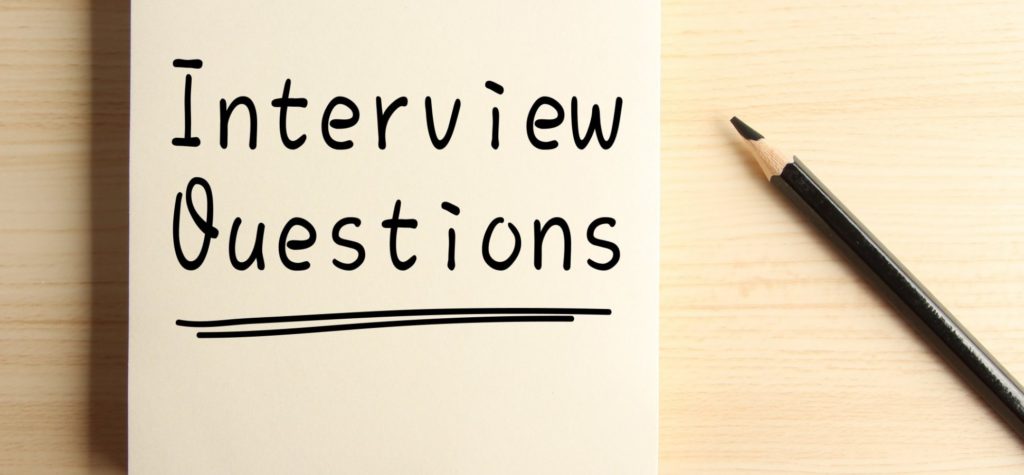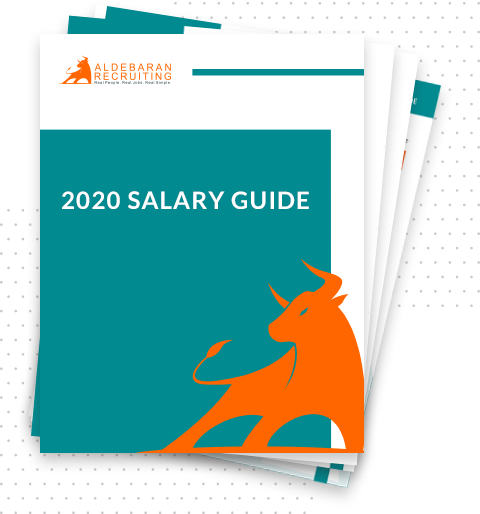Writing interview questions and doing the prep work regarding how to interview for any particular position is some of the most critical prep work when it comes to hiring the right talent for your role. Most bad hires are a function of one of a few different things. Either you have a bad set of interview questions that don’t flesh out whether or not the candidate is the right fit, or you have an interviewer who doesn’t know how to ask the right questions, or how to read responses from a prospective employees.
Interviewing truly is an art, and it is an art that most people don’t take seriously enough. Most hiring managers, or anybody in a hiring position, don’t have any formal interview training. Therefore, you end up with a lot of people in management positions who are interviewing, and basically winging it. This can cause a lot of problems, both with hiring individuals in that team, but also organizationally across your company. If you have multiple department heads conducting completely different types of interviews, you’re going to run into trouble when it comes to hiring a cohesive team that is all going to fit together.
CRAFTING YOUR INTERVIEW QUESTIONS
So, that is a topic really for another blog, when it comes to the best way to set up your organization to interview and hire effectively. And that will have to be something that we cover in a different post. For now, we want to focus on tips on how to write and craft your interview questions in order to be the most effective. Making a bad hire is one of the most costly mistakes you could make for your company and for your team. On average, a bad hire is going to cost you about $20,000. That is a major expense that needs to be avoided at all costs.
The key to writing good interview questions starts with having a solid job description. I’m not going to go into a lot of detail here on how to write job descriptions, as we have many previous posts on writing job descriptions. So, if you don’t have a solid job description for your position yet, that is where you want to start before you even think about what kinds of interview questions you’re going to have. Check out some of our previous blogs on how to write job descriptions for specific positions. If you don’t see your specific position, don’t worry, the posts tend to be very universal in many aspects, so take as much information as you can and write up a solid job description.
CREATING A FOUNDATION FOR YOUR INTERVIEW QUESTIONS
Once you have a solid job description, you’re going to want to use that job description as a foundation to craft your interview questions. The must haves and the nice to haves, as well as the position description, are going to be the key pieces that you’re going to want to craft your interview questions around. It’s important to remember that an interview goes both ways, so you want part of your interview to be an opportunity for the candidate to ask questions, and to learn and gain information about the company, the culture, et cetera.
You’ll want to make sure too that you have part of your interview as an introduction to your company. In other words, an introduction to what you do, your products and/or your services, how you’re different in the market, as well as topics like what your culture is like, what some of your benefits look like, what are some of the perks, and why someone would want to work for you.
ASKING THE RIGHT QUESTIONS
These selling points are all extremely critical when it comes to the interview process, so it’s important that you have those worked in around your interview questions themselves. Now, when it comes to crafting interview questions, the most important thing is that your questions don’t lead the witness. I say this a lot in other blogs, and in other places that I’m writing and speaking, that the biggest mistake interviewers make is they lead the witness. In other words, they ask questions that are too easy to answer yes or no to, or they ask questions that contain the answer within the question.
So, asking somebody something like, “Do you have a lot of experience working in digital marketing social media campaigns.” Someone’s easily going to say, “Yes, I have a lot of experience working in digital social media marketing campaigns.” You’ve got to craft your questions in a way that leaves things open ended, so that the answer is going to be one where your candidate has to answer from their experience and their background so that you get a clear picture of their experience.
So, a better question is something like, “Tell me about the last five projects that you worked on, and what those looked like on a day to day basis for you.” And then even going further into saying, “Great, tell me some of the challenges that you had with those projects, and what did you do to overcome them?” Or you can ask something like, “Tell me about the kinds of technologies you’ve worked with recently. What technologies are you strongest working in?”
And then as they answer those questions, you are listening for if their background and their experience match up with what you’re looking for. So, being able to craft questions that tease out what someone’s background is, is important. This is also critical when it comes to finding out about someone’s cultural and personality traits. You don’t ask somebody, “Are you hard working?” You don’t ask somebody, “Do you do well under pressure?” What you ask somebody is something along the lines of, “What is your ideal work environment?” Or you can ask somebody, “What did you like about the culture in your last company, and what didn’t you like about the culture in your last company?”
SETTING THE STAGE FOR YOUR INTERVIEWS
So, as a little side note here, one of the things I always recommend in an interview is to set someone up to be able to answer questions honestly. People walk into an interview and their ultimate goal is they want to get the job. So they’re already pre-programmed to tell you what you want to hear so that they get the job. In other words, people are always trying to give you the right answer. It’s part of human nature.
So, what you want to do is set the stage with folks early on in the interview so that they can answer honestly to see if it’s a good fit for both parties. So, saying something like, “Hey, look, I know you’re interested in this job and you want to make sure this interview goes well. And so do I, but the last thing either of us wants would be for you to work here and it ends up not being a good fit for you. So, feel free to answer questions in this interview honestly. Don’t feel like you have to tell me the answer that I want to hear. I want to know the honest truth, and you should be able to tell me the honest truth, so that we can both gauge if this is a good fit for us.”
Setting the stage like that with somebody is going to give them a lot of freedom to answer questions honestly, so that both you and them can gauge true fit.
CONCLUSION
So, this is a brief insight into how to write interview questions in a way that truly allows you to find the right talent. If you’re able to incorporate this into your team and across your organization, you have the beginnings of a solid foundation for interviewing.
Here are some more great tips for writing your interview questions: https://bit.ly/2QH3MSh
Have questions or want to find out about working with us? Let’s chat!



